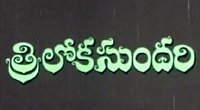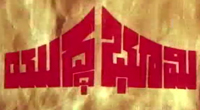This article needs additional citations for verification. (October 2018) (Learn how and when to remove this template message) |
Rashomon (??? Rash?mon) is a 1950 Japanese period film directed by Akira Kurosawa, working in close collaboration with cinematographer Kazuo Miyagawa. It stars Toshiro Mifune, Machiko Ky?, Masayuki Mori, and Takashi Shimura. While the film borrows the title from Ry?nosuke Akutagawa's short story "Rash?mon", it is actually based on Akutagawa's short story "In a Grove", which provides the characters and plot.
| Rashomon | |
|---|---|
Original Japanese poster from 1962 re-release | |
| Directed by | Akira Kurosawa |
| Produced by | Minoru Jingo |
| Screenplay by |
|
| Based on | "In a Grove" by Ry?nosuke Akutagawa |
| Starring |
|
| Music by | Fumio Hayasaka |
| Cinematography | Kazuo Miyagawa |
| Edited by | Akira Kurosawa |
Production company | Daiei Film |
| Distributed by | Daiei Film |
Release date |
|
Running time | 88 minutes |
| Country | Japan |
| Language | Japanese |
| Budget | $250,000 |
| Box office | $96,568 (US) |
The film is known for a plot device that involves various characters providing subjective, alternative, self-serving and contradictory versions of the same incident. Rashomon marked the entrance of Japanese film onto the world stage; it won several awards, including the Golden Lion at the Venice Film Festival in 1951, and an Academy Honorary Award at the 24th Academy Awards in 1952, and is considered one of the greatest films ever made.
Screenplay
The film opens on a woodcutter (???; Kikori, played by Takashi Shimura) and a priest (???; Tabi H?shi, Minoru Chiaki) sitting beneath the Rash?mon city gate to stay dry in a downpour. A commoner (Kichijiro Ueda) joins them and they tell him that they have witnessed a disturbing story, which they then begin recounting to him. The woodcutter claims he found the body of a murdered samurai three days earlier while looking for wood in the forest; upon discovering the body, he says, he fled in a panic to notify the authorities. The priest says that he saw the samurai with his wife traveling the same day the murder happened. Both men are then summoned to testify in court, where they meet the captured bandit Taj?maru (???), who claims to have set the samurai free after encountering him in the forest.
The bandit's story
Taj?maru (Toshiro Mifune), a notorious brigand, claims that he tricked the samurai to step off the mountain trail with him and look at a cache of ancient swords he discovered. In the grove he tied the samurai to a tree, then brought the samurai's wife there. She initially tried to defend herself with a dagger, but was eventually "seduced" by the bandit. The woman, filled with shame, then begged him to duel to the death with her husband, to save her from the guilt and shame of having two men know her dishonor. Taj?maru honorably set the samurai free and dueled with him. In Taj?maru's recollection they fought skillfully and fiercely, but in the end Taj?maru was the victor and the woman ran away. At the end of the story to the court, he is asked about an expensive dagger owned by the samurai's wife: he says that, in the confusion, he forgot all about it, and that it was foolish of him to leave behind such a valuable object.
The wife's story
The samurai's wife (Machiko Ky?) tells a different story to the court. She says that Taj?maru left after raping her. She begged her husband to forgive her, but he simply looked at her coldly. She then freed him and begged him to kill her so that she would be at peace. He continued to stare at her with a look of loathing. His expression disturbed her so much that she fainted with dagger in hand. She awoke to find her husband dead with the dagger in his chest. She attempted to kill herself, but failed in all her efforts.
The samurai's story
The court then hears the story of the deceased samurai (Masayuki Mori), told through a medium (??; miko, Noriko Honma). The samurai claims that Taj?maru, after raping his wife, asked her to travel with him. She accepted and asked Taj?maru to kill her husband so that she would not feel the guilt of belonging to two men. Taj?maru, shocked by this request, grabbed her, and gave the samurai a choice of letting the woman go or killing her. "For these words alone," the dead samurai recounted, "I was ready to pardon his crime." The woman fled, and Taj?maru, after attempting to recapture her, gave up and set the samurai free. The samurai then killed himself with his wife's dagger. Later, somebody removed the dagger from his chest.
The woodcutter's story
Back at Rash?mon gate (after the trial), the woodcutter explains to the commoner that all three stories were falsehoods. The woodcutter had actually witnessed the rape and murder, he says, but just did not want to get too involved at the trial. According to the woodcutter's new story, Taj?maru begged the samurai's wife to marry him, but the woman instead freed her husband. The husband was initially unwilling to fight Taj?maru, saying he would not risk his life for a spoiled woman, but the woman then criticized both him and Taj?maru, saying they were not real men and that a real man would fight for a woman's love. She spurred the men to fight one another, but then hid her face in fear once they raised swords; the men, too, were visibly fearful as they began fighting. They began a duel that was much more pitiful than Taj?maru's account had made it sound, and Taj?maru ultimately won through a stroke of luck. After some hesitation he killed the samurai, who begged for his life on the ground, and the woman fled in horror. Taj?maru could not catch her, but took the samurai's sword and left the scene limping.
Climax
At the gate, the woodcutter, priest, and commoner are interrupted from their discussion of the woodcutter's account by the sound of a crying baby. They find the baby abandoned in a basket, and the commoner takes a kimono and an amulet that have been left for the baby. The woodcutter reproaches the commoner for stealing from the abandoned baby, but the commoner chastises him. Having deduced that the reason the woodcutter did not speak up at the trial was because he was the one who stole the dagger from the scene of the murder, the commoner mocks him as "a bandit calling another a bandit." The commoner leaves Rash?mon, claiming that all men are motivated only by self-interest.
These deceptions and lies shake the priest's faith in humanity. He is brought back to his senses when the woodcutter reaches for the baby in the priest's arms. The priest is suspicious at first, but the woodcutter explains that he intends to take care of the baby along with his own children, of whom he already has six. This simple revelation recasts the woodcutter's story and the subsequent theft of the dagger in a new light. The priest gives the baby to the woodcutter, saying that the woodcutter has given him reason to continue having hope in humanity. The film closes on the woodcutter, walking home with the baby. The rain has stopped and the clouds have opened revealing the sun in contrast to the beginning where it was overcast.
- Takashi Shimura as Kikori, the wood cutter
- Minoru Chiaki as Tabi H?shi, the priest
- Kichijiro Ueda as the listener, a common person
- Toshiro Mifune as Taj?maru, the bandit
- Machiko Ky? as the Samurai’s wife
- Masayuki Mori as the Samurai, the husband
- Noriko Honma as Miko, the medium
- Daisuke Kat? as Houben, the policeman
The name of the film refers to the enormous, former city gate "between modern day Kyoto and Nara", on Suzaka Avenue's end to the South. The term Rashomon effect refers to real-world situations in which multiple eye-witness testimonies of an event contain conflicting information.
Development
Kurosawa felt that sound cinema multiplies the complexity of a film: "Cinematic sound is never merely accompaniment, never merely what the sound machine caught while you took the scene. Real sound does not merely add to the images, it multiplies it." Regarding Rashomon, Kurosawa said, "I like silent pictures and I always have... I wanted to restore some of this beauty. I thought of it, I remember in this way: one of the techniques of modern art is simplification, and that I must therefore simplify this film."
Accordingly, there are only three settings in the film: Rash?mon gate, the woods and the courtyard. The gate and the courtyard are very simply constructed and the woodland is real. This is partly due to the low budget that Kurosawa got from Daiei.
Casting
When Kurosawa shot Rashomon, the actors and the staff lived together, a system Kurosawa found beneficial. He recalls "We were a very small group and it was as though I was directing Rashomon every minute of the day and night. At times like this, you can talk everything over and get very close indeed".
Filming
The cinematographer, Kazuo Miyagawa, contributed numerous ideas, technical skill and expertise in support for what would be an experimental and influential approach to cinematography. For example, in one sequence, there is a series of single close-ups of the bandit, then the wife, and then the husband, which then repeats to emphasize the triangular relationship between them.
Use of contrasting shots is another example of the film techniques used in Rashomon. According to Donald Richie, the length of time of the shots of the wife and of the bandit are the same when the bandit is acting barbarically and the wife is hysterically crazy.
Rashomon had camera shots that were directly into the sun. Kurosawa wanted to use natural light, but it was too weak; they solved the problem by using a mirror to reflect the natural light. The result makes the strong sunlight look as though it has traveled through the branches, hitting the actors. The rain in the scenes at the gate had to be tinted with black ink because camera lenses could not capture the water pumped through the hoses.
Lighting
Robert Altman compliments Kurosawa's use of "dappled" light throughout the film, which gives the characters and settings further ambiguity. In his essay "Rashomon", Tadao Sato suggests that the film (unusually) uses sunlight to symbolize evil and sin in the film, arguing that the wife gives in to the bandit's desires when she sees the sun. However, Professor Keiko I. McDonald opposes Sato's idea in her essay "The Dialectic of Light and Darkness in Kurosawa's Rashomon". McDonald says the film conventionally uses light to symbolize "good" or "reason" and darkness to symbolize "bad" or "impulse". She interprets the scene mentioned by Sato differently, pointing out that the wife gives herself to the bandit when the sun slowly fades out. McDonald also reveals that Kurosawa was waiting for a big cloud to appear over Rashomon gate to shoot the final scene in which the woodcutter takes the abandoned baby home; Kurosawa wanted to show that there might be another dark rain any time soon, even though the sky is clear at this moment. Unfortunately, the final scene appears optimistic because it was too sunny and clear to produce the effects of an overcast sky.
Editing
Stanley Kauffmann writes in The Impact of Rashomon that Kurosawa often shot a scene with several cameras at the same time, so that he could "cut the film freely and splice together the pieces which have caught the action forcefully, as if flying from one piece to another." Despite this, he also used short shots edited together that trick the audience into seeing one shot; Donald Richie says in his essay that "there are 407 separate shots in the body of the film ... This is more than twice the number in the usual film, and yet these shots never call attention to themselves".
Music
The film was scored by Fumio Hayasaka, who is among the most respected of Japanese composers. At the director's request, he included an adaptation of "Boléro" by Maurice Ravel, especially during the woman's story.
Due to setbacks and some lost audio, the crew took the urgent step of bringing Mifune back to the studio after filming to record another line. Recording engineer Iwao ?tani added it to the film along with the music, using a different microphone.
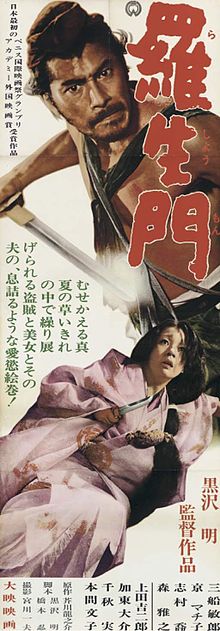 Story of movie Rashomon Film :
Story of movie Rashomon Film : 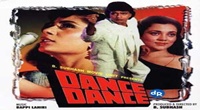
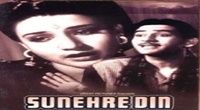
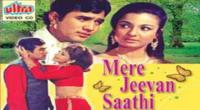

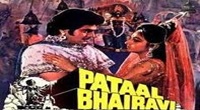

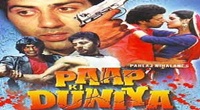

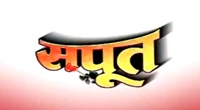
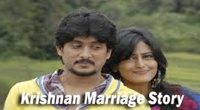
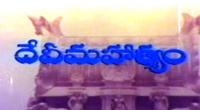
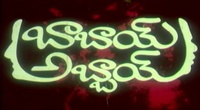
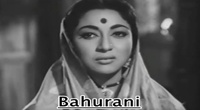
.jpg)





